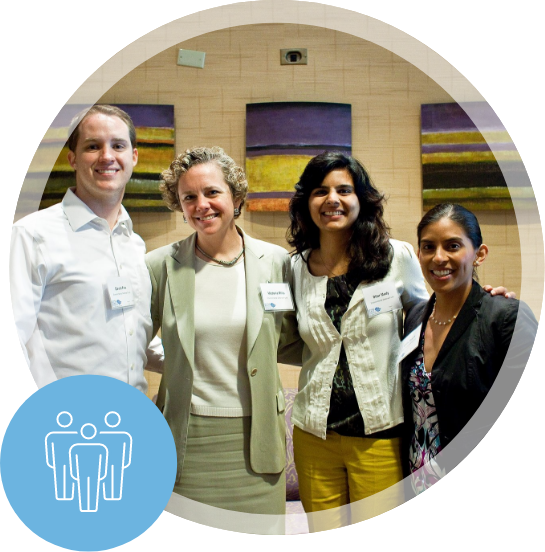Are you considering a career in family medicine?
Do you aspire to become a skilled and compassionate family physician?
If so, you’ve come to the right place! In this article, we’ll delve into the world of Family Medicine Fellowships, exploring what they are, why they matter, and how they can help you achieve your professional goals.
What are Family Medicine Fellowships?
At its core, a Family Medicine Fellowship is an advanced training program for medical graduates who have completed their residency in family medicine. It’s like taking your medical education to the next level. During this fellowship, you’ll receive specialized training in various aspects of family medicine, allowing you to become an expert in your chosen field. These fellowships offer physicians the opportunity to specialize further within the field of family medicine.
Specialization Options for Family Medicine Fellowships
There is a wide range of specialization options within family medicine fellowships, including:
1. Geriatric Medicine (H1)
- Geriatric medicine fellowships focus on the healthcare needs of older adults. Fellows learn to manage complex medical conditions that commonly affect seniors.
2. Sports Medicine (H2)
- Sports medicine fellowships prepare physicians to diagnose and treat sports-related injuries. They play a crucial role in keeping athletes of all levels in top condition.
3. Women’s Health (H3)
- Women’s health fellowships concentrate on the unique healthcare needs of women. This includes obstetrics, gynecology, and reproductive health.
4. Pediatric Medicine (H4)
- Pediatric medicine fellowships train physicians to care for children from infancy through adolescence. Pediatricians play a vital role in ensuring the health and development of young patients.
Why Choose Family Medicine Fellowships?
Family medicine is a unique and rewarding branch of healthcare. It’s all about building long-term relationships with patients of all ages, from infants to seniors. If you have a passion for helping people and want to make a lasting impact on their lives, family medicine might be the perfect fit for you.
1. Expertise in a Specific Area
One of the primary reasons to choose a family medicine fellowship is the opportunity to gain expertise in a specific area of medicine. While family physicians are already skilled in providing comprehensive care, fellowships allow you to delve deeper into a particular field. Whether you’re passionate about pediatrics, geriatrics, sports medicine, or women’s health, there’s a fellowship tailored to your interests.
2. Enhanced Patient Care
By pursuing a fellowship, you become a specialist in your chosen area of medicine. This specialization translates into more effective and targeted patient care. You’ll have the knowledge and skills to diagnose and treat complex medical conditions with precision, ultimately leading to better patient outcomes and higher satisfaction.
3. Addressing Healthcare Gaps
Family medicine fellowships play a critical role in addressing healthcare gaps. In many regions, especially rural and underserved areas, access to specialized care can be limited. By becoming a specialist through a fellowship, you can fill these gaps and ensure that patients receive the specialized care they need.
4. Career Advancement
Choosing a family medicine fellowship can open doors to exciting career opportunities. Specialized training often leads to higher-paying positions and leadership roles within healthcare organizations. It can also make you a sought-after expert in your field, further enhancing your career prospects.
5. Personal Fulfillment
Many medical professionals find immense personal fulfillment in pursuing family medicine fellowships. Becoming an expert and making a significant impact on patients’ lives can be incredibly rewarding. It allows you to follow your passion and contribute meaningfully to the field of healthcare.
6. Continuous Learning
In the ever-evolving field of medicine, staying up-to-date with the latest advancements is crucial. Family medicine fellowships provide a structured environment for continuous learning and professional development. You’ll have access to cutting-edge research, technologies, and practices that will benefit your patients.
7. Networking Opportunities
During your fellowship, you’ll have the chance to connect with fellow medical professionals, specialists, and researchers. Building a strong network can be invaluable for your career, whether you’re looking for collaboration opportunities, mentorship, or job prospects.
8. Improved Job Satisfaction
Specializing in an area you’re passionate about can significantly boost your job satisfaction. When you love what you do and see the positive impact you make on patients’ lives, it can enhance your overall happiness and well-being.
The Benefits of Completing a Fellowship
Completing a Family Medicine Fellowship offers several advantages. You’ll gain in-depth knowledge and hands-on experience in your chosen area of specialization, making you a sought-after expert in your field. Additionally, fellowships often open up exciting career opportunities and can lead to higher earning potential.
How to Get into a Family Medicine Fellowship Program
Getting into a family medicine fellowship program can be competitive, but with dedication and hard work, it’s achievable. You’ll need to submit a strong application, including your academic records, letters of recommendation, and a compelling personal statement. Be sure to highlight your passion for family medicine and your desire to make a difference in patients’ lives.
1. Choose Your Specialization
The first step in pursuing a family medicine fellowship is deciding on your area of specialization. Consider your interests, career goals, and the patient population you are most passionate about serving. Whether it’s geriatrics, sports medicine, women’s health, or another field, choose a specialization that aligns with your aspirations.
2. Research Fellowship Programs
Once you’ve identified your desired specialization, research fellowship programs that offer training in that area. Look for programs affiliated with reputable healthcare institutions and universities. Consider factors such as program duration, curriculum, faculty expertise, and available resources.
3. Meet Educational Requirements
Most family medicine fellowship programs require candidates to have completed a residency in family medicine. Ensure that you meet the educational requirements for the fellowship you’re interested in. If necessary, gain additional experience or training in your chosen field during your residency.
4. Prepare Your Application
Prepare a strong and comprehensive application for the fellowship program. This typically includes the following:
a. Curriculum Vitae (CV)
Create a well-organized CV that highlights your educational background, clinical experience, research activities, and any publications or presentations. Tailor your CV to emphasize your qualifications for the specific fellowship.
b. Personal Statement
Write a compelling personal statement that explains your interest in the fellowship, your career goals, and why you are a suitable candidate. Be sincere and passionate in your writing, showcasing your commitment to the field.
c. Letters of Recommendation
Secure letters of recommendation from faculty members, mentors, or colleagues who can attest to your qualifications and potential as a fellow. Choose individuals who know you well and can provide strong endorsements.
d. Transcripts
Submit official transcripts from your medical school and residency program as part of your application.
e. Test Scores
Some fellowship programs may require standardized test scores such as the USMLE (United States Medical Licensing Examination) or COMLEX (Comprehensive Osteopathic Medical Licensing Examination). Ensure you meet any test score requirements.
5. Prepare for Interviews
If your application is shortlisted, you may be invited for interviews. Prepare for these interviews by reviewing your application materials, researching the program thoroughly, and practicing interview questions. Be ready to discuss your qualifications, career goals, and why you’re a good fit for the fellowship.
6. Apply Early
Submit your application early to increase your chances of being considered for the fellowship. Many programs have rolling admissions, and spaces may fill up quickly.
7. Stay Persistent
Getting into a family medicine fellowship program can be competitive, and rejection is a possibility. If you don’t secure a spot in your desired program, don’t be discouraged. Continue to gain experience and improve your qualifications, and consider applying to other programs in subsequent application cycles.
8. Consider Alternative Pathways
In some cases, you may have the option to pursue a fellowship through alternative pathways, such as transitional fellowships or research fellowships. Explore these options if they align with your career goals.
9. Stay Informed
Stay informed about fellowship application deadlines, updates, and any changes in requirements. Join online forums, attend conferences, and connect with current fellows to gain insights into the application process.
What to Expect During Family Medicine Fellowships
During your fellowship, you’ll undergo intensive training, which may include clinical rotations, research projects, and mentorship from experienced family physicians. It’s a challenging but rewarding journey that will equip you with the skills and knowledge needed to excel in your chosen area of expertise.
Life After Completing Family Medicine Fellowships
Once you’ve successfully completed your family medicine fellowship, a world of opportunities awaits you. You can choose to work in private practice, join a healthcare institution, or even teach the next generation of family physicians. Your fellowship experience will set you on a path to a fulfilling and impactful career.
Challenges and Rewards in Family Medicine
Like any medical profession, family medicine comes with its challenges. You’ll encounter complex medical cases, long hours, and the need to balance patient care with administrative tasks. However, the rewards of helping patients through life’s ups and downs far outweigh the challenges.
Challenges
1. Broad Scope of Practice
Family physicians are often referred to as “generalists” because they provide comprehensive care across a wide range of medical disciplines. While this breadth of practice is a strength, it can also be a challenge. Family physicians must stay up-to-date with a vast amount of medical knowledge and be prepared to diagnose and treat diverse medical conditions.
2. Time Constraints
The demand for primary care services is high, and family physicians often have busy schedules. This can lead to time constraints, making it challenging to provide the level of personalized care they aspire to. Long working hours and the need to balance administrative tasks can also contribute to burnout.
3. Complex Cases
Family physicians frequently encounter complex medical cases that require in-depth evaluation and treatment. Managing patients with multiple chronic conditions or rare diseases can be mentally and emotionally taxing. These cases demand a high level of expertise and patience.
4. Administrative Burden
The administrative burden in healthcare has increased in recent years, with family physicians having to deal with insurance paperwork, electronic health records (EHRs), and billing. This administrative workload can detract from the time spent with patients and add stress to the profession.
5. Burnout
Burnout is a significant concern in family medicine due to the combination of heavy workloads, administrative tasks, and emotional demands. Burnout can lead to a decrease in job satisfaction and, in severe cases, impact the quality of patient care.
Rewards
1. Holistic Care
One of the most rewarding aspects of family medicine is the opportunity to provide holistic care. Family physicians develop long-term relationships with their patients, allowing them to consider not only the physical health but also the emotional and social well-being of individuals and families.
2. Preventive Medicine
Family physicians have a unique role in preventive medicine. They can educate patients about healthy lifestyles, administer vaccinations, and conduct screenings to detect health issues early. Preventing illnesses and promoting wellness is immensely satisfying.
3. Diverse Patient Population
Family medicine exposes healthcare professionals to a diverse patient population, including people of different ages, backgrounds, and medical needs. This diversity can be intellectually stimulating and provide a sense of fulfillment from serving a wide range of patients.
4. Long-Term Relationships
Building long-term relationships with patients and their families is a rewarding aspect of family medicine. Witnessing the growth and health of children, supporting patients through life’s challenges, and being a trusted healthcare provider is fulfilling.
5. Community Impact
Family physicians often serve as pillars of their communities. They play a vital role in improving the health of local populations, addressing public health issues, and contributing to the overall well-being of their communities.
The Future of Family Medicine: Trends and Innovations
The field of family medicine is constantly evolving. From telemedicine and electronic health records to personalized medicine and preventive care, family medicine is at the forefront of healthcare innovation. Staying updated on these trends is crucial to providing the best care to your patients.
Now that we’ve covered these essential topics related to family medicine fellowships, let’s address some common questions you might have.
Frequently Asked Questions for Family Medicine Fellowships(FAQs)
1. What is the duration for Family Medicine Fellowships?
- Family medicine fellowships typically last one to two years, depending on the specialization.
2. Can I apply for a fellowship immediately after completing my residency in family medicine?
- Yes, you can apply for a fellowship right after your residency, but some programs may require a few years of clinical experience.
3. Are family medicine fellowships competitive?
- Yes, they can be competitive, so it’s essential to have a strong application and demonstrate your commitment to the field.
4. How do I choose the right specialization for my fellowship?
- Consider your interests and career goals. Research different specialties and talk to experienced family physicians for guidance.
5. What are the key qualities of an excellent family physician?
- Excellent communication skills, empathy, a commitment to lifelong learning, and the ability to build trust with patients are crucial qualities for a family physician.
You get opportunities for personal and professional growth while allowing you to make a positive impact on the health and well-being of individuals and families. So, if you’re passionate about healthcare and ready to take your career to the next level, consider the rewarding path of family medicine fellowships. Your journey starts here!
See more:
- Top 10 Medical Courier Jobs in 2023
- University of Pisa DSU Scholarship in Italy 2023/24 | Fully Funded
- Apply Now: Kwame Nkrumah University of Science and Technology (KNUST) MasterCard Foundation Scholars Program for Young Africans |Fully Funded
References:
https://medicine.umich.edu/dept/family-medicine/education/fellowships






